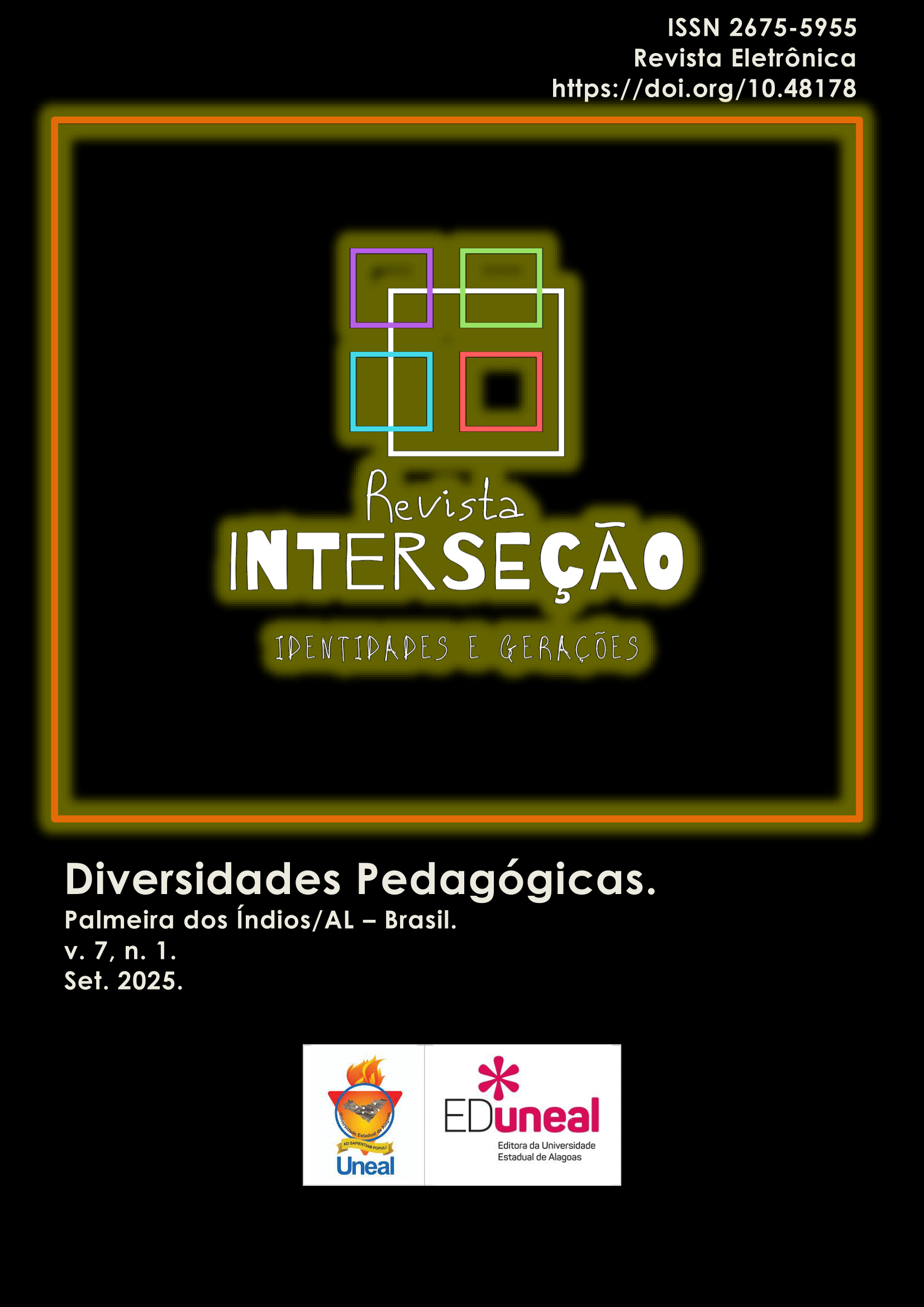A inovação no ensino: o papel transformador dos Ambientes Virtuais de Aprendizagem na Educação Contemporânea
DOI:
https://doi.org/10.48178/intersecao.v7i1.611Abstract
RESUMO
Este artigo analisa os Ambientes Virtuais de Aprendizagem (AVA) como ferramentas transformadoras no cenário educacional contemporâneo, explorando suas funcionalidades, benefícios, desafios e potenciais futuros. O estudo investiga como os AVAs promovem experiências educacionais mais colaborativas, personalizadas e alinhadas às demandas tecnológicas e sociais do século XXI. Esses ambientes, integrados às Tecnologias da Informação e Comunicação (TICs), oferecem ferramentas como fóruns, wikis, blogs e videoconferências, que enriquecem o processo de ensino-aprendizagem ao estimular a interação, a construção coletiva do conhecimento e a autonomia dos alunos.Além de explorar o impacto positivo dos AVAs, o artigo também aborda os desafios associados à sua implementação, como a resistência à mudança por parte de educadores e alunos, a falta de formação técnica adequada e as desigualdades no acesso à infraestrutura tecnológica. A pesquisa sugere que o sucesso na adoção dessas plataformas está diretamente relacionado à capacitação docente contínua, ao planejamento pedagógico estratégico e ao investimento em políticas públicas que democratizem o acesso às tecnologias educacionais.A análise se estende ainda às metodologias híbridas, como o ensino presencial combinado ao virtual (blended learning), e ao uso de tecnologias emergentes, como inteligência artificial e realidade aumentada, que prometem expandir as possibilidades de ensino nos AVAs. Esses recursos têm o potencial de personalizar a aprendizagem, criar cenários imersivos e facilitar a análise de dados, permitindo intervenções pedagógicas mais precisas e eficazes.Por fim, o artigo destaca a importância de integrar os AVAs de maneira estratégica às práticas pedagógicas, não apenas como ferramentas complementares, mas como catalisadores de mudanças significativas no ensino. Essa transformação exige o engajamento de educadores, gestores e alunos em um esforço conjunto para superar barreiras e maximizar os benefícios das tecnologias educacionais, construindo uma educação mais inclusiva, flexível e conectada às necessidades da sociedade contemporânea.
Palavras-chave: Ambientes Virtuais de Aprendizagem. Tecnologias da Informação e Comunicação. Aprendizagem Colaborativa. Metodologias Híbridas. Inteligência Artificial.
ABSTRACT
This article analyzes Virtual Learning Environments (VLEs) as transformative tools in the contemporary educational landscape, exploring their functionalities, benefits, challenges, and future potential. The study examines how VLEs promote more collaborative, personalized educational experiences aligned with the technological and social demands of the 21st century. These environments, integrated with Information and Communication Technologies (ICTs), provide tools such as forums, wikis, blogs, and videoconferences, enriching the teaching-learning process by fostering interaction, collective knowledge building, and student autonomy.In addition to exploring the positive impact of VLEs, the article also addresses the challenges associated with their implementation, such as resistance to change by educators and students, lack of adequate technical training, and inequalities in access to technological infrastructure. The research suggests that the success of adopting these platforms is directly related to ongoing teacher training, strategic pedagogical planning, and investment in public policies that democratize access to educational technologies.The analysis further extends to hybrid methodologies, such as blended learning, which combines face-to-face and virtual teaching, and to the use of emerging technologies like artificial intelligence and augmented reality, which promise to expand the teaching possibilities in VLEs. These resources have the potential to personalize learning, create immersive scenarios, and facilitate data analysis, enabling more precise and effective pedagogical interventions.Finally, the article highlights the importance of strategically integrating VLEs into pedagogical practices, not only as complementary tools but as catalysts for significant changes in teaching. This transformation requires the engagement of educators, administrators, and students in a joint effort to overcome barriers and maximize the benefits of educational technologies, building a more inclusive, flexible, and connected education system that meets the needs of contemporary society.
Keywords: Virtual Learning Environments. Information and Communication Technologies. Collaborative Learning. Hybrid Methodologies. Artificial Intelligence.
Downloads
Downloads
Veröffentlicht
Zitationsvorschlag
Ausgabe
Rubrik
Lizenz
Copyright (c) 2025 Dorimar Leal

Dieses Werk steht unter der Lizenz Creative Commons Namensnennung - Nicht-kommerziell 4.0 International.
Os autores detém os direitos autorais sem restrições, devendo informar a publicação inicial nesta revista, em caso de nova publicação de algum trabalho.



